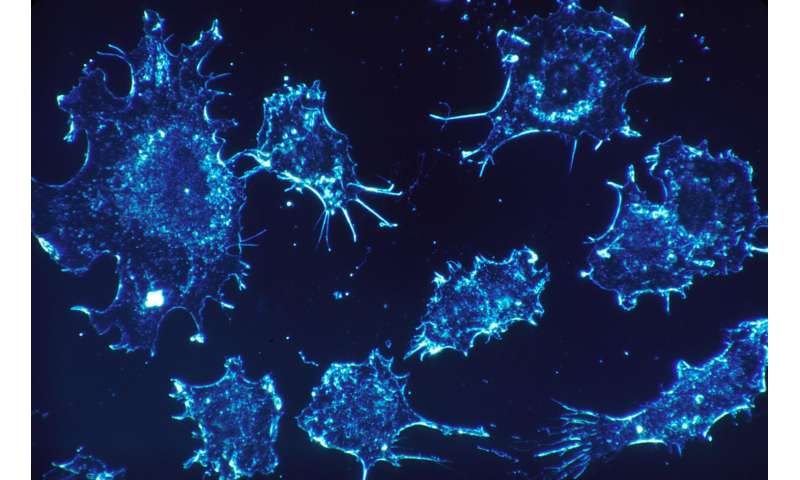
People need to be alert to the more vague symptoms of cancer and not be afraid to seek advice from their GPs during the global coronavirus pandemic, medical researchers say.
They also warn new ways of remote working could make it harder for GPs to pick up on worrying symptoms, in a comment article published today in Lancet Oncology.
The experts, from four universities including Cardiff, write: “It is likely that patients with well recognized ‘red flag’ symptoms such as a new lump or rectal bleeding will continue to present to primary care.
“However, with COVID-19 at the forefront, vague cancer symptoms such as fatigue, change in bowel habit and weight loss may be dismissed by the patient as trivial. Respiratory symptoms including persistent cough may be attributed to COVID-19 and not acted on.”
The researchers say cancer in primary care—from diagnosis to management of those living with the disease—is “evolving rapidly” in the face of the global pandemic.
“In a climate of fear and mandated avoidance of all but essential clinical services, delays in patient, population and healthcare system responses to cancer symptoms seem inevitable,” they say.
Professor Kate Brain, a researcher from Cardiff University’s School of Medicine who is looking at the impact of delayed diagnoses of cancer, says: “UK national cancer screening programs—which account for 5% of all cancer diagnoses each year—have been suspended.
“As such, early diagnosis through spotting—and acting upon—the early signs of cancer becomes extremely important.
The group of experts also urge GPs to recognize that telephone and video consultations will work for some patients but will disadvantage others, particularly those who do not have access to a computer.
The researchers argue that new ways of working across primary care may also “blind side” some GPs. Remote consultations make it harder for doctors to pick up on the other cues that may help in a face-to-face consultation, such as the patient’s general demeanor, they say.
Some GPs may not be able to access timely routine tests because hospitals are focused on COVID-19—which adds to the importance of picking up on symptoms.
The medical researchers note that primary care also needs to support individuals with cancer who are worried about their treatment during the pandemic. Some cancer therapies can affect an individual’s immune system, putting them more at risk of contracting an infection—and others may have experienced delays in their treatment.
And they say planning should start now for when services begin to return to normal across the NHS.
Source: Read Full Article
